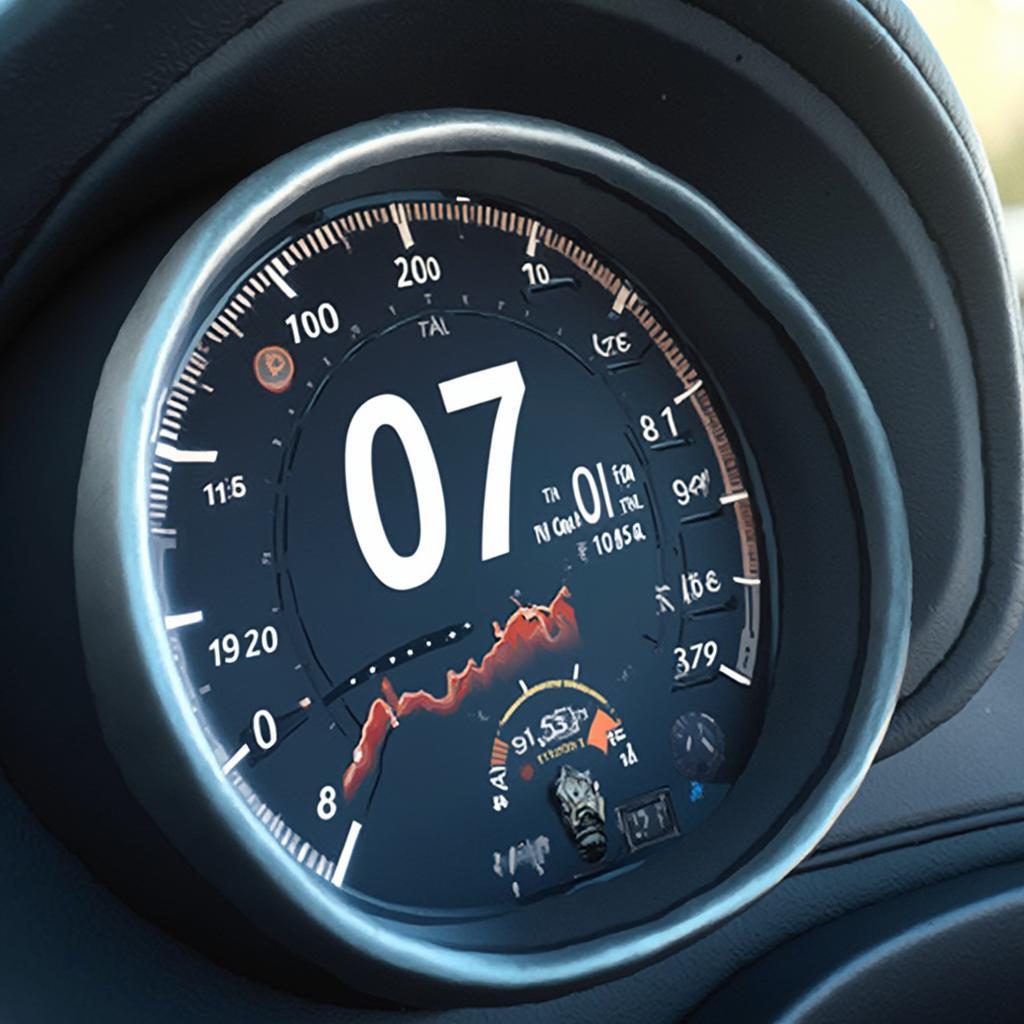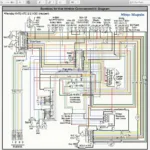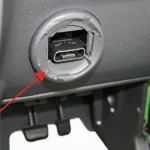Are you looking for a gauge app that doesn’t use OBD2? You’ve come to the right place. While OBD2 scanners are a powerful tool for accessing vehicle data, there are situations where a non-OBD2 gauge app might be preferable or even necessary. This article explores the reasons why you might choose a non-OBD2 solution and delves into the available alternatives, offering insights into their functionalities, benefits, and limitations.
Why Choose a Gauge App Without OBD2?
Sometimes, using an OBD2 scanner isn’t feasible. Perhaps your vehicle is older and doesn’t have an OBD2 port. Maybe you’re concerned about potential warranty issues related to OBD2 use. Or, you might simply be looking for a simpler, less expensive solution. Whatever the reason, exploring alternative gauge apps can open up new possibilities for monitoring your vehicle’s performance.
Benefits of Non-OBD2 Gauge Apps
Non-OBD2 gauge apps can offer several advantages:
- Compatibility with older vehicles: These apps can be a lifesaver for classic car owners or those driving vehicles manufactured before OBD2 became standard.
- Simplicity: Some users find non-OBD2 apps easier to set up and use, especially those that rely on GPS or other readily available data sources.
- Cost-effectiveness: While some advanced non-OBD2 solutions can be pricey, many basic apps are available for free or at a lower cost than OBD2 scanners.
- Reduced warranty concerns: Although unlikely, some vehicle manufacturers have expressed concerns about aftermarket OBD2 devices impacting warranties. Non-OBD2 apps circumvent this potential issue.
Limitations of Non-OBD2 Gauge Apps
It’s crucial to understand that not all gauge apps are created equal. Non-OBD2 solutions often have limitations compared to their OBD2 counterparts:
- Limited data access: Without a direct connection to the vehicle’s computer, non-OBD2 apps typically access fewer parameters.
- Accuracy concerns: Data derived from indirect sources like GPS or accelerometer readings can be less precise than direct OBD2 readings.
- Functionality restrictions: Some advanced features, such as diagnostic trouble codes (DTC) reading and clearing, are exclusive to OBD2 scanners.
Exploring Non-OBD2 Gauge App Alternatives
Several alternatives exist for those seeking gauge apps that don’t use OBD2:
- GPS-based apps: These apps utilize GPS data to calculate speed, distance traveled, and sometimes even acceleration. While generally accurate for speed, other parameters like fuel consumption are estimates based on algorithms and may not be precise.
- Accelerometer-based apps: These apps leverage the phone’s built-in accelerometer to measure acceleration and deceleration forces. This information can be used to calculate performance metrics like 0-60 mph times.
- Third-party data integration: Some apps connect to external sensors or devices via Bluetooth or other wireless protocols. This allows for accessing specific data points, like tire pressure or temperature, not available through GPS or accelerometer alone.
Choosing the Right Non-OBD2 Gauge App for You
Selecting the ideal non-OBD2 gauge app depends on your specific needs and priorities. Consider the following factors:
- Required data parameters: Identify the specific information you need to monitor. Do you primarily need speed and distance, or are you looking for more specialized data?
- Vehicle compatibility: Ensure the app is compatible with your vehicle’s make, model, and year.
- Accuracy requirements: How critical is the precision of the data? If pinpoint accuracy is paramount, an OBD2 solution might be necessary.
- Budget: Gauge apps range from free to premium options. Consider your budget and the features offered.
Gauge App That Doesn’t Use OBD2: Frequently Asked Questions
- Are non-OBD2 gauge apps accurate? Accuracy can vary depending on the data source and the specific app. GPS-based speed measurements are generally accurate, while other parameters might be estimates.
- Can non-OBD2 apps diagnose car problems? No, diagnostic trouble code (DTC) reading and clearing require an OBD2 connection.
- What are the best non-OBD2 gauge apps for Android? Several reputable options are available, including apps like “Speedometer” and “GPS Speed Tracker.”
- Are there any free non-OBD2 gauge apps? Yes, many free options are available, offering basic functionality like speed and distance tracking.
- Can I use a non-OBD2 gauge app on a classic car? Yes, these apps can be a great way to monitor performance in older vehicles without OBD2 ports.
- Do non-OBD2 gauge apps affect my car’s warranty? Generally, no. Since they don’t physically connect to the vehicle’s systems, they are less likely to cause warranty issues.
- Can I use multiple non-OBD2 gauge apps simultaneously? Yes, but be mindful of potential battery drain and resource usage on your phone.
Conclusion
While OBD2 scanners offer comprehensive vehicle data access, gauge apps that don’t use OBD2 provide valuable alternatives in specific situations. Understanding their benefits and limitations allows you to choose the best solution for your needs. Whether you’re driving a classic car, seeking a simpler solution, or concerned about warranty issues, non-OBD2 gauge apps can provide valuable insights into your vehicle’s performance. Remember to consider factors like required data parameters, accuracy needs, and budget when making your decision. If you’re looking for a gauge app that doesn’t use obd2, this article has provided you with the information to make an informed choice.
Need assistance with choosing the right solution? Contact us via WhatsApp: +1(641)206-8880, Email: [email protected] or visit us at 789 Elm Street, San Francisco, CA 94102, USA. Our 24/7 customer support team is ready to help.


